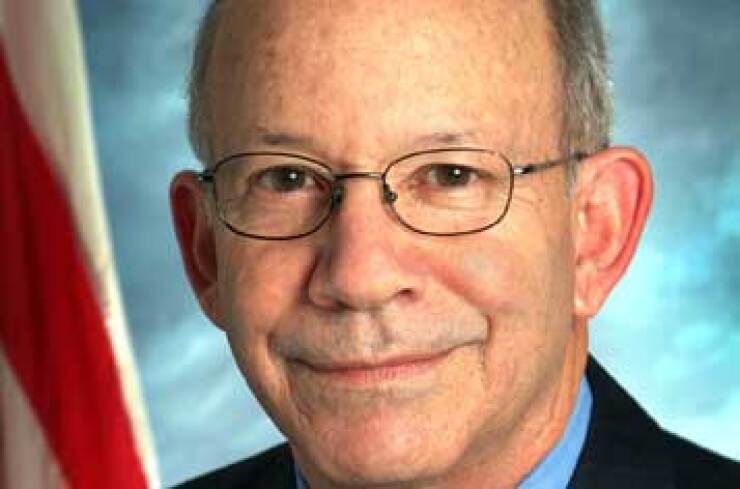
WASHINGTON – Rep. Peter DeFazio’s bill to impose a 0.03% tax on secondary market trades of stocks, bonds and derivatives would include tax-exempt as well as corporate bonds, a spokeswoman for the Democrat from Oregon said on Thursday.
The “Putting Main Street First Act” (H.R. 5745), introduced on Wednesday, is similar to bills that the congressman and former Sen. Tom Harkin, D-Iowa, introduced in 2011 and 2013.
DeFazio told reporters on Wednesday that the tax, which would amount to three cents for every $100 trade, is designed to discourage the same speculative trading that led to the 2008 Wall Street collapse and the 2010 “flash crash.” It also would raise revenue to fund national priorities such as the development and repair infrastructure.
The tax would be paid by the purchaser of a bond or stock and collected by a broker or exchange. It would raise $417 billion over 10 years, according to the Joint Committee for Taxation.
For munis, this kind of transaction tax would be on top of a fee of $0.01 per $1,000 of the total par value of bonds imposed by the Municipal Securities Rulemaking Board on interdealer muni sales.
There was some confusion about whether the tax would apply to munis because the text of the bill says the tax would be imposed with respect to “any covered transaction.” Covered transactions would include purchase of bonds, stocks or derivatives that occurred or were subject to the rules of “a qualified board” as defined by Section 1256(g)(7) of the Internal Revenue Code, according to the bill.
That section of the tax code says “a qualified board or exchange” means: a national securities exchange which is registered with the Securities and Exchange Commission; a domestic board of trade designated as a contract market by the Commodity Futures Trading Commission; or any other exchange, board of trade, or other market which the [Treasury] Secretary determines has rules adequate to carry out the purposes of this section. None of these seem to apply to munis.
Under the bill, while trades involving tax-advantaged investments, such as college savings accounts, 401(k)s, or health savings accounts would also be taxed, individuals would receive tax credits equal to the transaction tax they paid. Additionally, annuities, insurance products and initial public offerings would not be taxed because they are not traded.
DeFazio conceded to reporters on Wednesday that there is little chance the bill would move forward in a Republican-led Congress. But the measure is in line with the Democratic platform for the presidential election, which warns against “risky financial deals that jeopardize everyone, especially the middle class.”
Supporters of the bill include the AFL-CIO, Americans for Financial Reform, the Center for Economic and Policy Research, the Communications Workers of America, and Public Citizen.
But Payson Peabody, managing director and tax counsel for the Securities Industry and Financial Markets Association, said on Thursday that SIFMA “has a long record of opposing FTT [financial transaction tax] laws. He called the proposed tax “a new federal sales tax on Americans saving for retirement” and said it “is a bad idea.”
“If the experience of other countries is any guide, an FTT would raise less revenue than promised; it would also reduce liquidity sharply in the affected markets, reducing asset values and increasing borrowing costs for US businesses, consumers, and the federal government itself,” Peabody said.
There was some confusion from market participants about whether the bill would apply to tax-exempt bonds.





